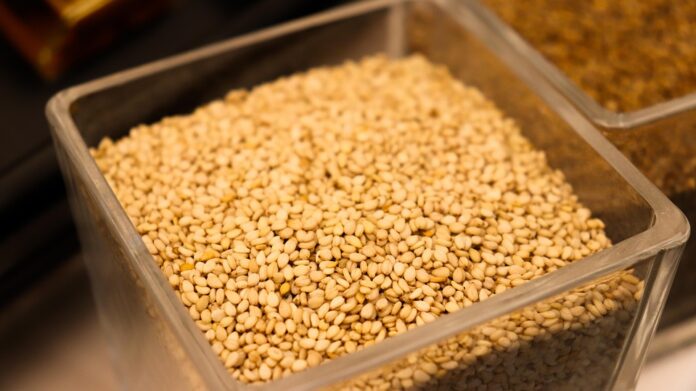Introduction
Sesame seeds are small oilseeds that are cultivated for their oil-rich properties. Sesame oil is widely used in cooking, skincare products, and even in some traditional medicine practices. In this report, we will delve into the process of growing sesame seeds and how they are pressed into refined or toasted oil. We will also explore the companies involved in the production of sesame oil and provide insights into the industry as a whole.
Growing Sesame Seeds
Cultivation Process
Sesame seeds are typically grown in warm climates with well-drained soil. The seeds are planted directly into the ground, either by hand or using machinery. Sesame plants require adequate sunlight and water to thrive, and they are often grown alongside other crops in rotation systems to improve soil health.
Harvesting
Sesame plants usually mature within 90-120 days after planting. The seeds are ready for harvest when the pods turn brown and begin to crack open. Farmers typically use machinery to harvest the sesame plants, which are then left to dry in the sun before further processing.
Pressing Sesame Seeds into Oil
Refined Oil Production
Once the sesame seeds have been harvested and dried, they are typically cleaned to remove any impurities. The seeds are then processed using a mechanical press or an expeller to extract the oil. The oil is then refined through processes such as degumming, neutralization, bleaching, and deodorization to remove any impurities and improve its quality.
Toasted Oil Production
To produce toasted sesame oil, the seeds are first toasted before being pressed. This process gives the oil a distinct nutty flavor and aroma. The toasted sesame oil is typically used in Asian cuisine for its unique taste and fragrance.
Industry Insights
Key Players
Some of the major companies involved in the production of sesame oil include Kadoya Sesame Mills Inc., La Tourangelle, Eden Foods, and Spectrum Naturals. These companies are known for their high-quality sesame oil products and have a strong presence in the market.
Market Trends
The global sesame oil market is expected to grow at a steady pace in the coming years, driven by increasing consumer awareness of the health benefits of sesame oil. The rise in demand for natural and organic products is also expected to fuel the growth of the sesame oil industry.
Financial Data
According to a report by Market Research Future, the global sesame oil market is expected to reach a value of over $9 billion by 2023, with a compound annual growth rate of over 5%. This growth is attributed to the increasing demand for sesame oil in the food and beverage industry, as well as in the cosmetics and personal care sectors.
Conclusion
In conclusion, sesame seeds are grown in warm climates and harvested for their oil-rich properties. The seeds are pressed into refined or toasted oil through mechanical processes, and the resulting oil is used in a variety of applications. The sesame oil industry is expected to grow steadily in the coming years, driven by increasing consumer demand for natural and organic products. Companies such as Kadoya Sesame Mills Inc. and La Tourangelle are key players in the industry, and the market is expected to continue to expand in the future.




